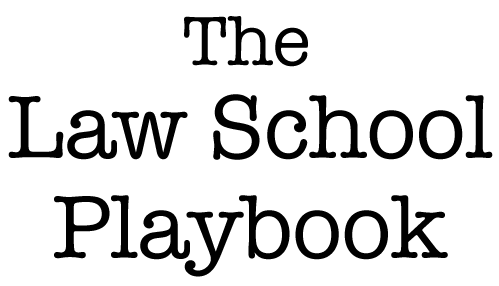Dear Student,
Welcome to The Law School Playbook! I’m Halle Hara, a professor of academic success and personal skills coach to law students and attorneys. I’m glad you’re here! We have discussed numerous strategies that can prompt you to be an engaged, critical thinker while reading. It is important for you to recognize, however, that your willingness to continually monitor your own thoughts and assess your own understanding as you read is essential to you becoming an expert reader. You must choose to engage in a disciplined analysis of the text, making connections between ideas and considering numerous perspectives. Stated simply, it is up to you to engage in the metacognition—thinking about your thinking—as you work through cases. Being able to recognize the reading strategies available to you may help with that process.
University of San Diego School of Law Professor Leah Christensen’s work highlights three broad categories of reading strategies that law students use as they work through cases. These categories, used by Christensen in her study of think aloud reading sessions, were first identified by higher education researcher Dr. Dorothy Deegan (later Dorothy Evensen). They are: problematizing, rhetorical, and default.
Deegan, and later Christensen, defined problematizing strategies as those that are purposeful or strategic. Because I struggle to pronounce the word problematizing, I will refer to this category problem-solving (although I will note that Deegan created problematizing from both problem solving and problem posing). Others have called this a problem formation or reflective strategy. The problem-solving strategies we have discussed include finding a purpose, role playing, predicting, hypothesizing, inferring, and recursive reading.
Rhetorical reading strategies involve the reader moving beyond the text itself to invoke an independent evaluation of it. Using rhetorical reading strategies, the reader connects personally to the text by, for example, talking to themselves and forming opinions. In other words, the reader synthesizes their own viewpoints or experiences with the case material.
Finally, default reading strategies are those you likely used while in undergrad. They include linear reading (reading a case like a mystery novel, from beginning to end), highlighting, underlining, paraphrasing, or making notes in the book margins.
The research of Professor Christensen and others confirms that under-performing students primarily use default reading strategies such as underlining, highlighting, or book briefing, while their more successful classmates primarily use a combination of problem-solving and rhetorical reading strategies. That doesn’t mean you have to throw out all of your highlighters; in fact, most readers use of combination of all three strategies. The key is to adopt practices that are focused on an active, critical analysis of the text, as opposed to a passive acceptance of its truth.
Using default reading strategies alone will lead you to oversimplify the material. In failing to approach the text as a problem solver, you may improperly view a difficult case as easy. You may pass over the words to get the gist but decline to engage in the struggle that is inherent in reading legal text. In sum, you won’t take away much from the experience in terms of comprehension and retention for law school or skill building for practice.
It is worth your while to embrace reading strategies that will help you reach your goals of being a strong law student and an effective lawyer. To become an expert reader takes patience, diligence, and practice.
Let’s end on a light note by quoting Dwayne Johnson, also known as “The Rock.” He said, “Success isn’t always about greatness. It’s about consistency. Consistent hard work leads to success. Greatness will come.”
If would you like to read this episode, get suggestions for further reading, or to request individual coaching with me, please visit my website at www.lawschoolplaybook.com.
As always, do your best, and I’ll be rooting for you!
References and Further Reading
Leah M. Christensen, Legal Reading and Success in Law School: An Empirical Study, 30 Seattle U. L. Rev. 603 (2007).
Dorothy H. Deegan, Exploring Individual Differences Among Novices Reading in a Specific Domain: The Case of Law, 30 Reading Res. Q. 154, 161 (1995).
Bryan A, Garner, The Importance of Attentive Reading, ABA Online (2014). https://www.americanbar.org/groups/young_lawyers/publications/tyl/topics/writing/the_importance_attentive_reading/.
Jane Bloom Grisé, Critical Reading for Success in Law School and Beyond 13, 21–25 (2017).
Ruth Ann McKinney, Reading Like a Lawyer: Time-Saving Strategies for Reading Law Like an Expert 71–72, 74–76 (2d ed. 2012).
Daniel Roberts, The Rock’s Best Advice for Success, Fortune (Online) (2014) http://fortune.com/2014/10/30/the-rocks-best-advice-for-success/.
